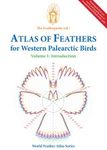![Interspecific Competition in Birds Interspecific Competition in Birds]()
Click to have a closer look
About this book
Contents
Customer reviews
Biography
Related titles
About this book
In nature there exist three main types of biotic interactions between individuals of different species: competition, predation, and mutualism. All three exert powerful selection pressures, and all three shape communities. However, the question of how important interspecific competition in nature really is remains controversial and unresolved.
This book provides a critical and exhaustive review of the topic. Although the examples are limited mostly to birds the conclusions reached have a far broader relevance to population ecologists in general. The book reasons that the coexistence of species is the result of both past and presently on-going interspecific competition. Furthermore, understanding the importance of interspecific competition in natural systems will be increasingly important when modelling the effects of climate change on populations.
Contents
Preface
1: Introduction
2: Definitions, models, and on how to measure the existence of interspecific competition
3: Space as a limiting resource
4: Food as a limiting resource
5: Nest sites as a limiting resource
6: The effect of intraspecific competition on population processes
7: Studies of foraging niches and food
8: Field experiments to test the existence and effects of interspecific competition
9: Long-term experiments on competition between great and blue tit
10: Evolutionary effects of interspecific competition
11: Concluding thoughts
Appendices
References
Index
Customer Reviews
Biography
Andre Dhondt is the Edwin H. Morgens Professor of Ornithology at Cornell University. He studied biology at Ghent State University where he obtained his Ph.D. After working for F.A.O. in Madagascar and Western Samoa, he returned to his native Belgium to teach at the newly founded Universitaire Instelling Antwerpen, part of Antwerp University. In Antwerp he developed an active research group in population and behavioural ecology and started his long-term field experiments on interspecific competition between great and blue tits. He was a visiting professor in Zaire (now Congo), Algeria and Paris. He moved to the Laboratory of Ornithology at Cornell University in 1994 where he explored the effects of a newly emerged disease on house finches across North America. He has published more than 250 papers and book chapters and has co-edited a book on Dispersal. He is a member of the Academiae Europaeae and many ornithological and ecological societies.






































